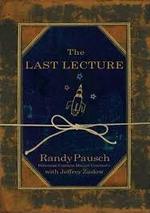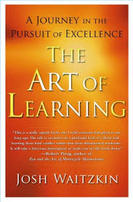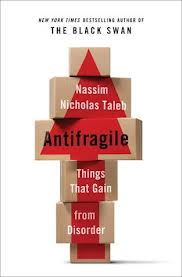 I just finished reading The Last Lecture by Randy Pausch, who was a computer science professor at Carnegie Mellon working on virtual reality (and spent some time as a Disney Imagineer!). It was a bittersweet tale of a professor in the last few months of his life as he recounted his life's dreams and his preparation for leaving his wife and kids live their life without him. It was inspirational, funny, and thought-provoking, and I was impressed by the humanity and humility of such an intelligent, scientific man. Below is the actual video of his lecture at CMU, and below that are my main takeaways and nuggets from the book. It's so wonderful that he could share such meaningful lessons with the world.
0 Comments
 I recently finished reading The Art of Learning by Josh Waitzkin, and I can easily say it's one of the best books I've read this year so far. It hit home on so many levels, and I enjoyed seeing so many parallels between it and other books I've been reading recently. I heard about it through Tim Ferriss's podcast, where Tim interviewed Josh about his experiences in the worlds of chess and Tai Chi. The chess side was somewhat familiar to me, as I took some chess lessons growing up but never got into it too seriously. The Tai Chi stuff was all new, but I did have some familiarity with the meditative aspects. I was very impressed by Josh's clarity of writing and how he was able to distill his experiences into very useful, concrete lessons and techniques, all the while telling a story filled with graphic images and gripping plot lines. It was a neat mix between stories of his own life and deep philosophical musings. The book touched on so many interrelated subjects: meditation, exercise, interval training, chess training, Tai Chi principles, psychology, cognitive biases, and strategy of war, among others. I took a ton of notes (below) and aim to try out many of his ideas, like journaling and paying attention to what sparks creativity in me and finding ways to trigger that myself. In addition, I want to develop a similar focus on quality as he discusses it. The way Josh goes from field to field and becomes a world-class expert and aims to actually push each art forward resonated a lot with me, as I too find myself having many interests and wanting to master them. However, Josh has been able to go extremely deep into a couple fields, whereas I find myself having gone only somewhat deep (like to the level of basic competency) in a whole bunch of fields (jack of all trades, master of none). It's time for me to work on mastery instead. In some ways I pride myself on my ability to learn the basics of many disparate things very quickly and adapt, but in other ways I feel like a disappointment as I haven't gone so deep into any one field. Some of the fields I'm into for work, like computers, finance, and entrepreneurship, I've excelled at but certainly haven't become "world class," and I can say the same thing about my hobbies, like magic (attained above average competency but nothing extraordinary). I think that a big challenge for me in implementing Josh's suggestions for how to go deep will be identifying which are the exact fields/hobbies/interests to go deep into. Josh seems so much more in tune with his inner truth and calling, and that's something I want to find for myself as well in order to give me the clarity and motivation necessary to really delve deep into one thing.  For the last 2 months, my mind has been blown on a daily basis by the book Antifragile: Things That Gain From Disorder by Nassim Nicholas Taleb. This is the longest and deepest I've gotten into a book since high school, and I found pretty much every chapter thought-provoking and lifestyle-questioning. I already felt like my mind had been blown, and that was just after finishing the prologue. "Antifragile" is the word that Taleb coins for the concept of gaining from disorder (the real opposite of fragility, which is not the same thing as "robust"). The book covers the topics of philosophy, finance, math, statistics, lifestyle, food, fitness, education, and history, and it applies various strategies and concepts to finding ways to live more naturally and with more antifragility. I can see how many people will be angered and offended by the direct manner in which Taleb denounces the professions of consultant, banker, economist, academic, business school professor, soccer mom, and tourist. I think books that question a lot of fundamentals are the only ones that bring actual progress to our lives as human thinkers, and this book does exactly that. Overall, I took 47 pages of notes on the book (see below), and that sheer quantity is enough to show how much I liked it. It's not easy to distill these into a few bullet points, and I will be trying over the next couple months to come up with some concrete suggestions and techniques to put the book's ideas into practice in my own life. Here are just a handful of lessons and broad concepts that come immediately to mind:
Below are the rest of my notes. I really want to discuss some of this stuff with other readers, so let me know what you think. |
Archives
June 2024
Categories
All
Subscribe |
 RSS Feed
RSS Feed
